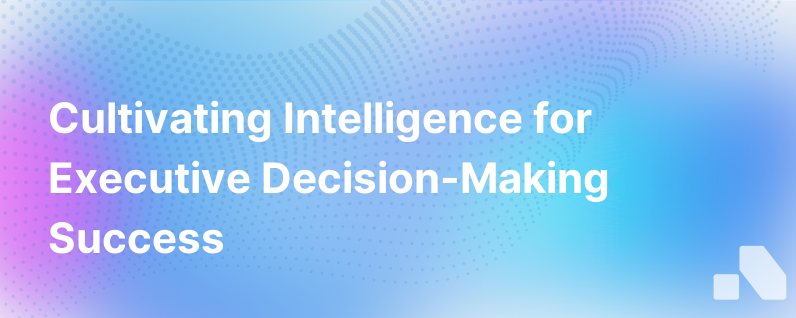
Imagine two companies competing in the same market. The product quality, pricing, and personnel are nearly equivalent. Yet one consistently outperforms the other. How? More than likely, the answer lies in a more developed intelligence culture.
An intelligence culture refers to an organization’s collective habits, behaviors, and attitudes towards the use of data and business intelligence (BI) tools. In a highly intelligent culture, evidence-based decision making is prevalent, data transparency is encouraged, and fresh insights are constantly sought.
Understanding and embracing the principles of an intelligence culture is vital to stay competitive in a landscape dominated by information. Laying the foundation towards this culture can be transformative, tweaking your internal operations, decision-making, and approach to innovation.
Why is an Intelligence Culture Important?
In an intelligence culture, everyone cares about data. Instead of a select few delegated with handling business intelligence, data ownership is democratized across teams. Fostering an intelligence culture:
- Promotes informed decision-making across all levels of an organization
- Fosters curiosity, innovation, and creativity
- Encourages transparency, building trust within the organization
- Predicts market trends better, leading to increased adaptability
- Cultivates a more informed workforce, improving satisfaction and efficiency
Building Blocks of an Intelligence Culture
Creating an intelligence culture is a dynamic process shaped by various elements:
Top-Down Support: Executives and upper management need to drive the change, ensuring the benefits of embracing an intelligence culture are communicated effectively. Leaders should lead by example, utilizing data in decision-making and emphasizing the importance of business intelligence in their interactions.
Data Literacy: An effective intelligence culture isn’t built overnight; it requires the people within the organization to understand data. Regular training sessions, workshops, and resources should be available to equip employees with the necessary skills and tools.
Access to Real-Time Data: Data access should be horizontal, allowing everyone from marketing specialists to sales reps to benefit from the insights generated by data. Real-time information fosters swift decision-making and flexibility.
Use of BI Tools: Business Intelligence tools like Power BI, Tableau, and Aomni reduce complexities associated with data by presenting it in comprehensible, visually appealing formats. These allow employees to generate insights, raise questions, and find solutions independently.
Achieving Intelligence Culture – Strategic Steps to Consider
-
Promote Business Intelligence: Start by educating employees about the importance of data and how it can turn the tide in your favor. Advocate for a data-driven approach in every business operation.
-
Invest in BI Tools: The right BI tools, like Aomni, simplify data analysis by providing user-friendly interfaces, automation capabilities, and customization options. Such tools make digesting and utilizing complex data simpler for every employee.
-
Prioritize Data Literacy: Take measures to equip your team with the skills and knowledge to interpret data comfortably. Workshops, seminars, and online courses can help individuals gain confidence in interacting with data.
-
Foster Collaboration: Encourage open discussions centered on data insights. This spurs curiosity, promotes a sense of ownership, and unearths valuable insights from diverse perspectives.
-
Celebrate Success: When data-driven approaches yield success, don't hesitate to celebrate. This reinforces the value of data and motivates employees to rely on it more often in their roles.
The Role of Aomni
Aomni is instrumental in fostering an intelligence culture in your organization. Our AI platform for B2B sales provides real-time account research, competitive insights, and personalized sales content within 15 minutes, making business intelligence accessible and convenient. Aomni encourages informed decision-making, boosts data literacy, and fits perfectly into the broader goal of an intelligence culture.
Conclusion
Seizing the enormous potential of data and business intelligence requires more than just tools and technologies – it calls for a change in the organizational culture. An intelligence culture is about creating an environment where curiosity fuels insight, data informs decisions, and intelligence drives innovation. By fostering such a culture, you unlock new opportunities, drive efficiency, and ensure sustainable growth. Let AI solutions like Aomni be your ally in this quest to instill an intelligence culture in your organization.